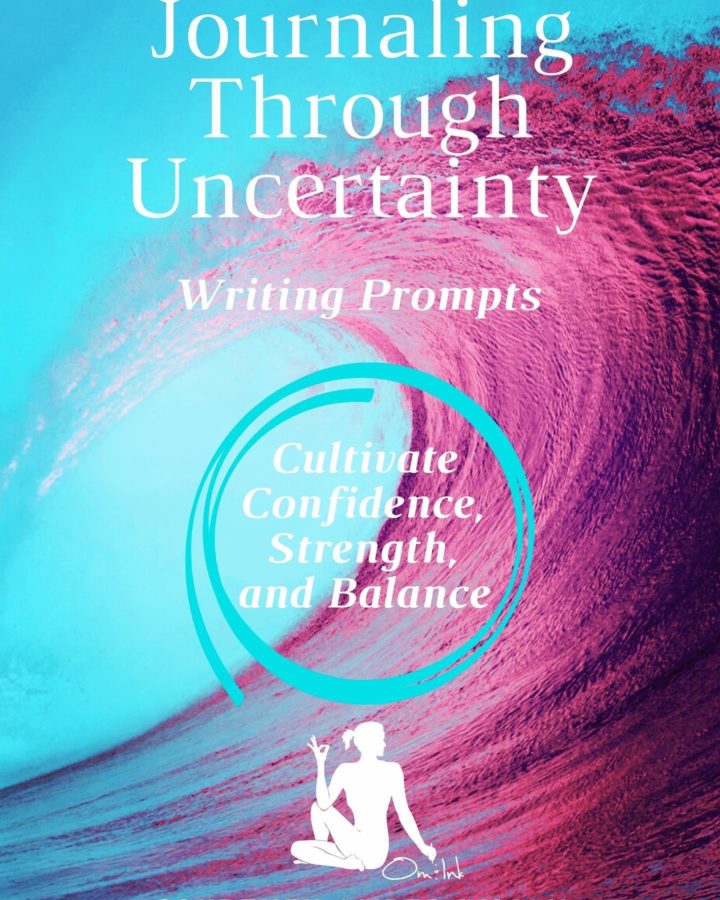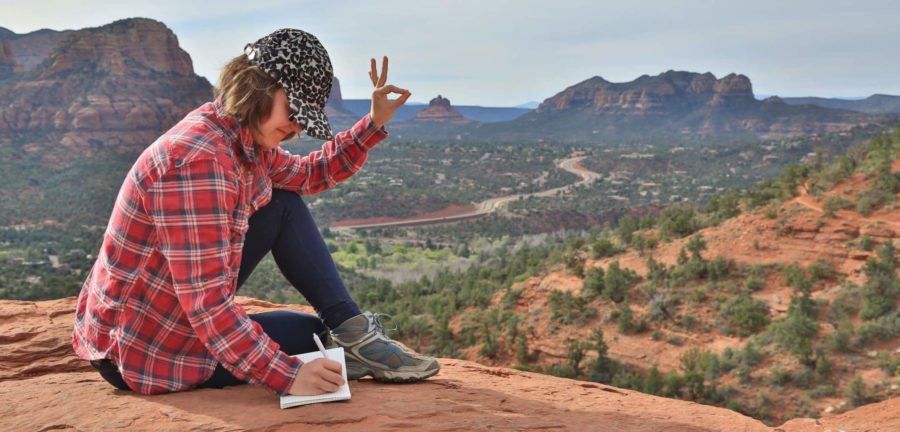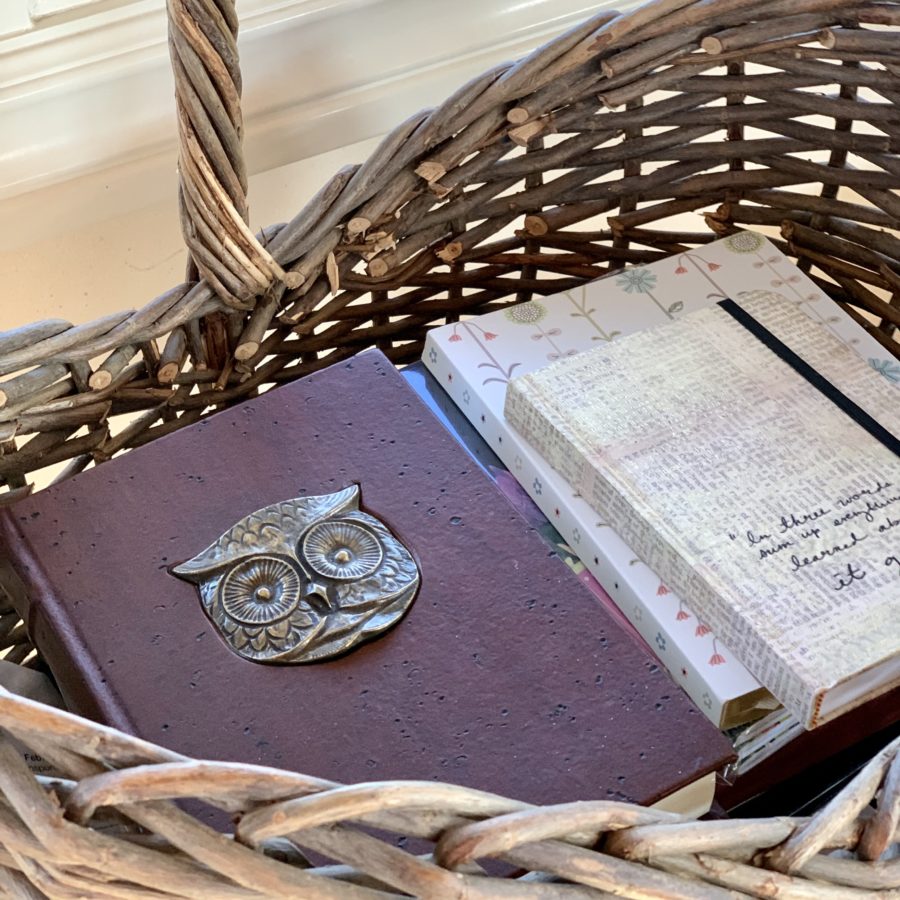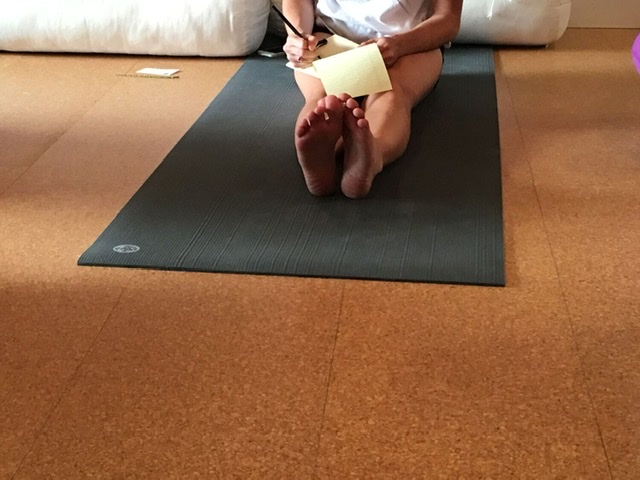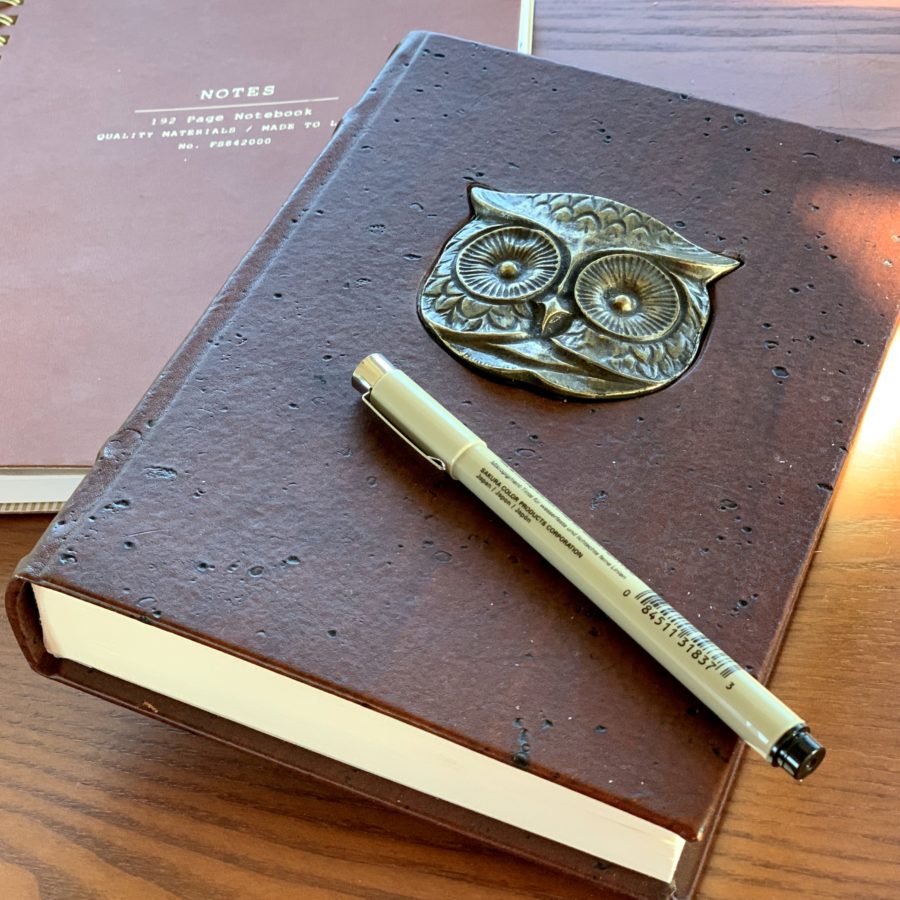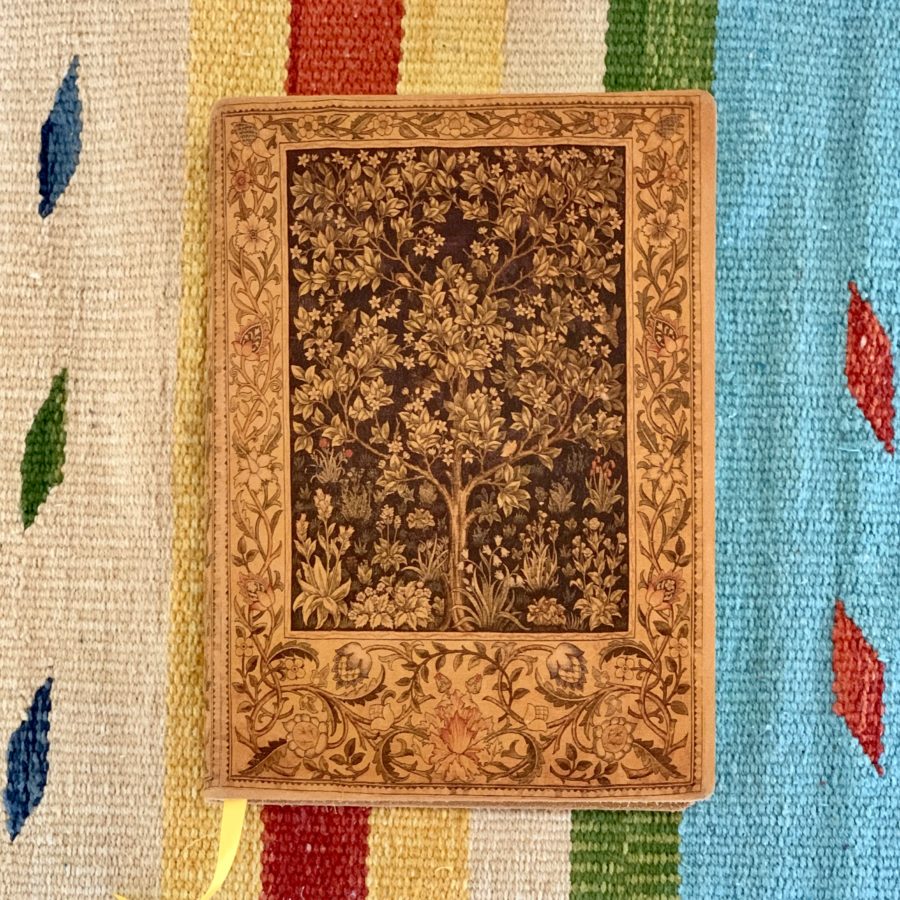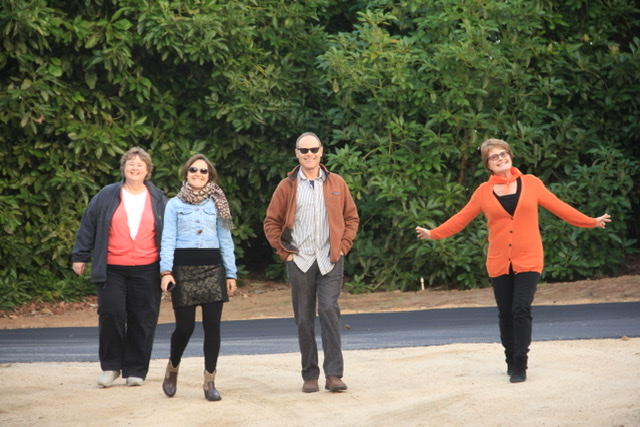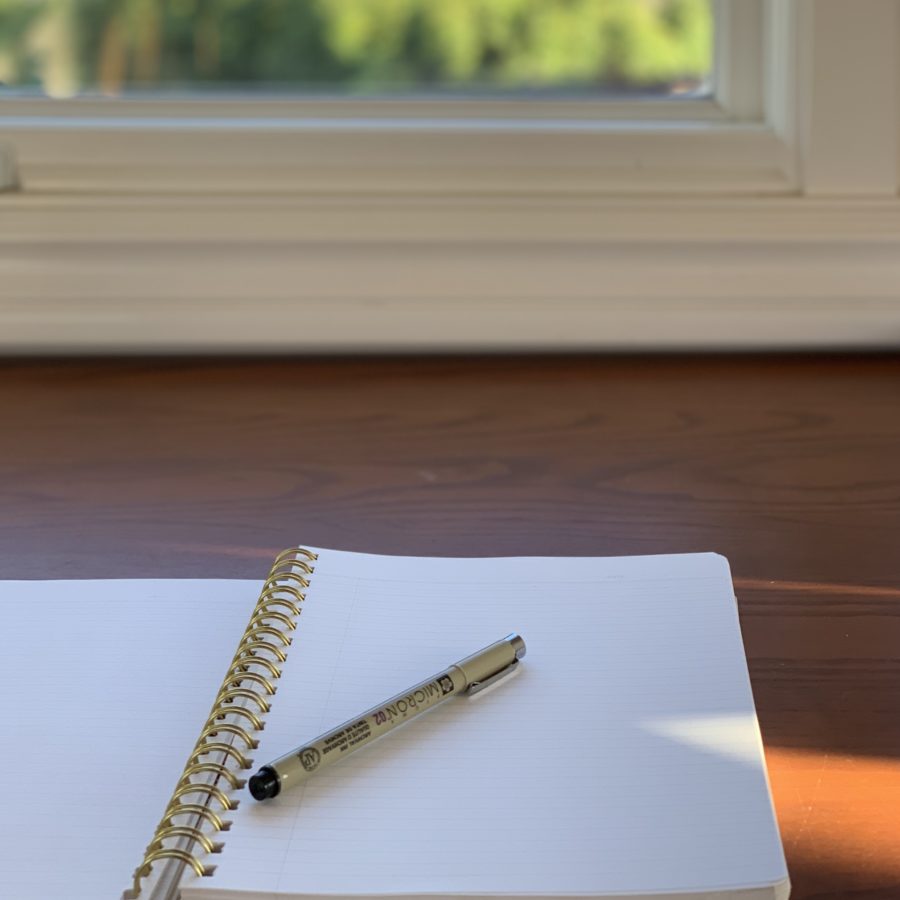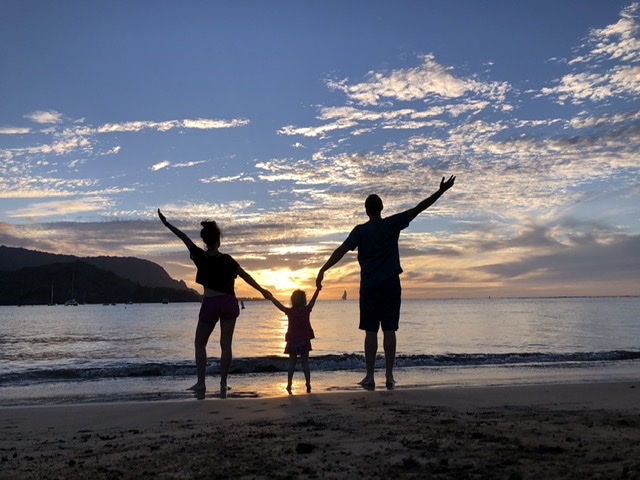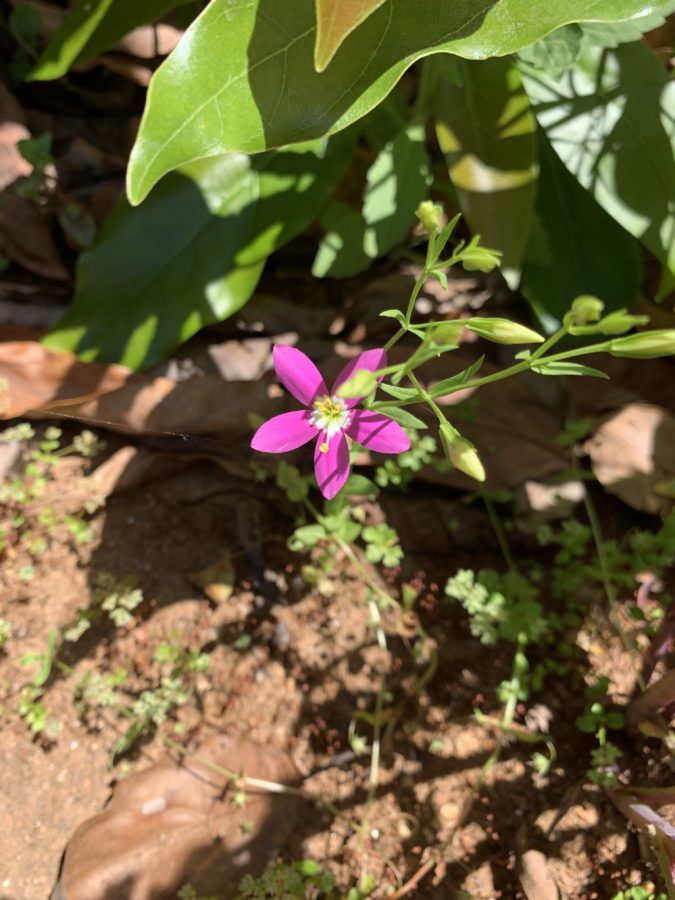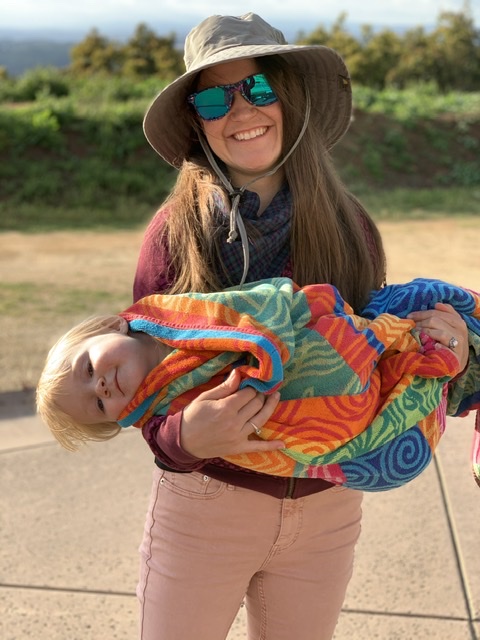A Different Kind of Post
If you have ever thought you might want to be a writer, this post is for you. What makes a writer? Someone who writes! When life gets chaotic and we need to live each day despite difficult challenges, journaling can be a way to preserve our memories and find a pathway to balance during difficult times. How to begin? Read on!
Journaling Through Uncertainty
How did you decide to write this book?
Courtney: “When quarantines and shelter in place orders first started, I focused on the silver linings that were coming from the Covid-19 pandemic because it was a way of coping for me. I journaled regularly, spilling out my thoughts and letting go of emotional wanderings so they wouldn’t build up. I listed in writing what I was grateful for and practiced mindfulness-based prompts I’d created in the past.
As I wrote and processed and centered myself through writing, I realized I could develop a resource to help others. From my own journaling practice and prompts I’ve created for classes over the years, I developed Journaling Through Uncertainty. It’s a guide for reflection and healing and to help others discover stronger, more resilient versions of themselves during challenging times.
Research has proven the therapeutic health benefits of writing by hand. My wish is to get as many people journaling as I can. Responding in writing to prompts can be cleansing and a perfect way to let go of anxiety and connect to the present moment.”
Why is journaling important in your own life?
Courtney: “Here are four reasons why journaling is crucial to me:
When did you first start journaling?
Courtney: “Storytelling is what I remember most. Before I could write myself, I would dictate stories to my mom so she could record them for me. I loved inventing worlds and characters and writing about them. The summer of third grade, I started a family newspaper where I would record what my family of four did each week. My mom always had a journal with her when we took family vacations. I remember going to pick out a new journal each year for our trips or special memories.
In elementary school, I had one of those huge desk calendars where I would write as small as possibly to fit everything I did into the day into a single square. In middle school, I had yearly planners with ample room to write notes about my day and I wrote stories that I couldn’t keep in mind anymore and had to get onto the page. In high school, I started using journals with no lines—still my favorite because there’s more freedom to write big or tiny or slanted—where I collected what I called ‘snippets’: notes on characters, conversations I found fascinating, stories I’d heard, things that happened to me that felt stranger than fiction, and detailed descriptions of the world around me.
My journaling practice has morphed over the years, and it evolves depending on what I need. In my twenties after some health issues, journaling became more about finding an anchor and releasing things on the page for its therapeutic benefits. Journaling stills serves me as an important creative outlet and place for creativity discover, but it’s also a key component of self-care and healing in my life.”
Who inspired you to use journaling in your life?
Courtney: “My mom has always loved to write and kept a journal with her. Since retirement, my dad has become a journaler of sorts as well. He plays the guitar and writes all of his own music and lyrics—the lyrics are his form of journaling, with each song a way to process the world around him.”
“A writing teacher once told me, “the difference between the writer and the nonwriter, is that the writer writes it down,”—ie, we all have fascinating thoughts, but a writer thrives on capturing those thoughts, those ideas, those descriptions. This nudge encouraged me to keep writing, to keep collecting, to capture the thoughts and nuggets that I wouldn’t get back if I didn’t put them into written form. And, every time, I open a journal and read from it, I’m so thankful for the things that I wrote down.”
Please describe your journaling process.
Courtney: “I try to wake-up earlier than the rest of my family to start my day with practices that ground me and fill my well, which include a gentle yoga practice, a walk, and journaling. On these mornings, I journal at our dining room table, or when it’s warmer in a lounge chair on our deck watching sunrise.
Somedays this doesn’t happen, but I try to fit journaling in as often as I can. I usually only have a few hours during the day to work on freelance projects and my own creative work, and I bemoaned to a friend that I just don’t have time to write by hand, that it’s too much of a luxury to journal. She suggested that I write in my journal as soon as I sit down to my desk, instead of diving into other projects. It was a beautiful suggestion. I write for five to ten minutes before I start other work. It clears my mind, increases myproductivity, and motivates me. There’s nothing like starting work by doing something for myself, instead of waiting, and then it not happening.”
“On days I can’t write by hand, I write in the notes on my phone to capture any thoughts or moments I don’t want to lose. I also use journaling as an anchor and a coping mechanism. When things are stressful, when my anxiety rises, I make a practice to reach for my journal. Letting things go in writing does wonders for my mindset.
Into my mid-twenties I only recorded the good moments—nothing upsetting, nothing challenging, nothing uncomfortable. And, then I stumbled across a quote—I wish I could give you the quote; I have no idea what book it was in, nor what author expressed the words, but the gist of it was to write down everything, that it’s not life without imperfection, without tears, sadness, pain, anger, depression—that those moments make the good moments shine even greater.
From that moment, I stopped censoring myself. I wrote about hard things. I wrote about darkness. I wrote during a several years depression after a car accident. And, you know what? Almost a decade later, I’m thankful for those notes, those entries, those insights into what it was really like during that time.
We are here to bear witness. No one else can bear witness to your thoughts, your emotional landscape, your life, like you can. I’ve never been sorry that I recorded something, only that I didn’t.”
Kindle E-book (free on Kindle Unlimited for the next few months) http://omandink.com/product/journaling-uncertainty-writing-prompts-cultivate-confidence-strength-balance-kindle-e-book/
Paperback with room to explore prompts directly on its pages: http://omandink.com/product/journaling-uncertainty-writing-prompts-cultivate-confidence-strength-balance-paperback/
Courtney’s website/blog: http://omandink.com/
ewsletter sign-up, for a monthly dose of inspiration with writing and mindfulness practices: https://omandink.us12.list-manage.com/subscribe?u=f6e647762dc621721a9a82550&id=0ab355eb2b&fbclid=IwAR37TQUjpQEUmzQGA0b2bRFY4rRqRRH5fVJyGGLA5nT_BkDsYsQgdzx-_0Y
Courtney’s Instagram: https://www.instagram.com/om.and.ink/


